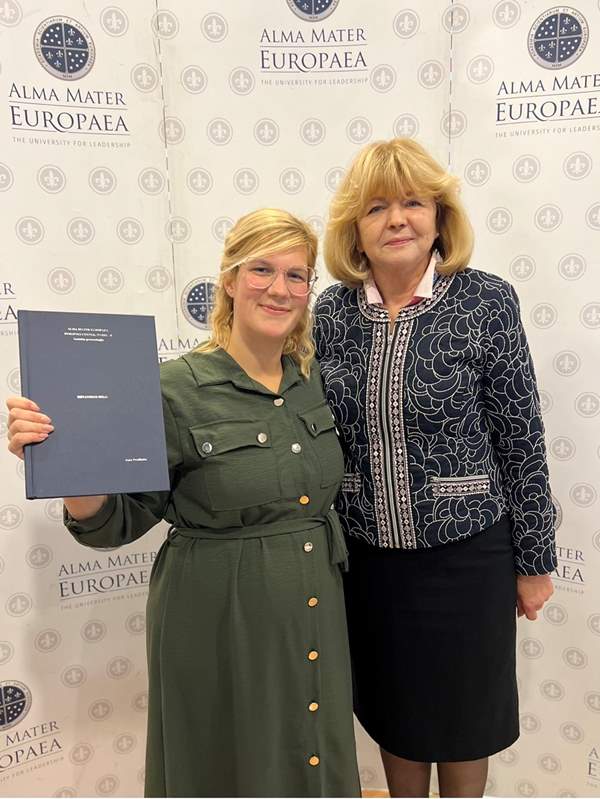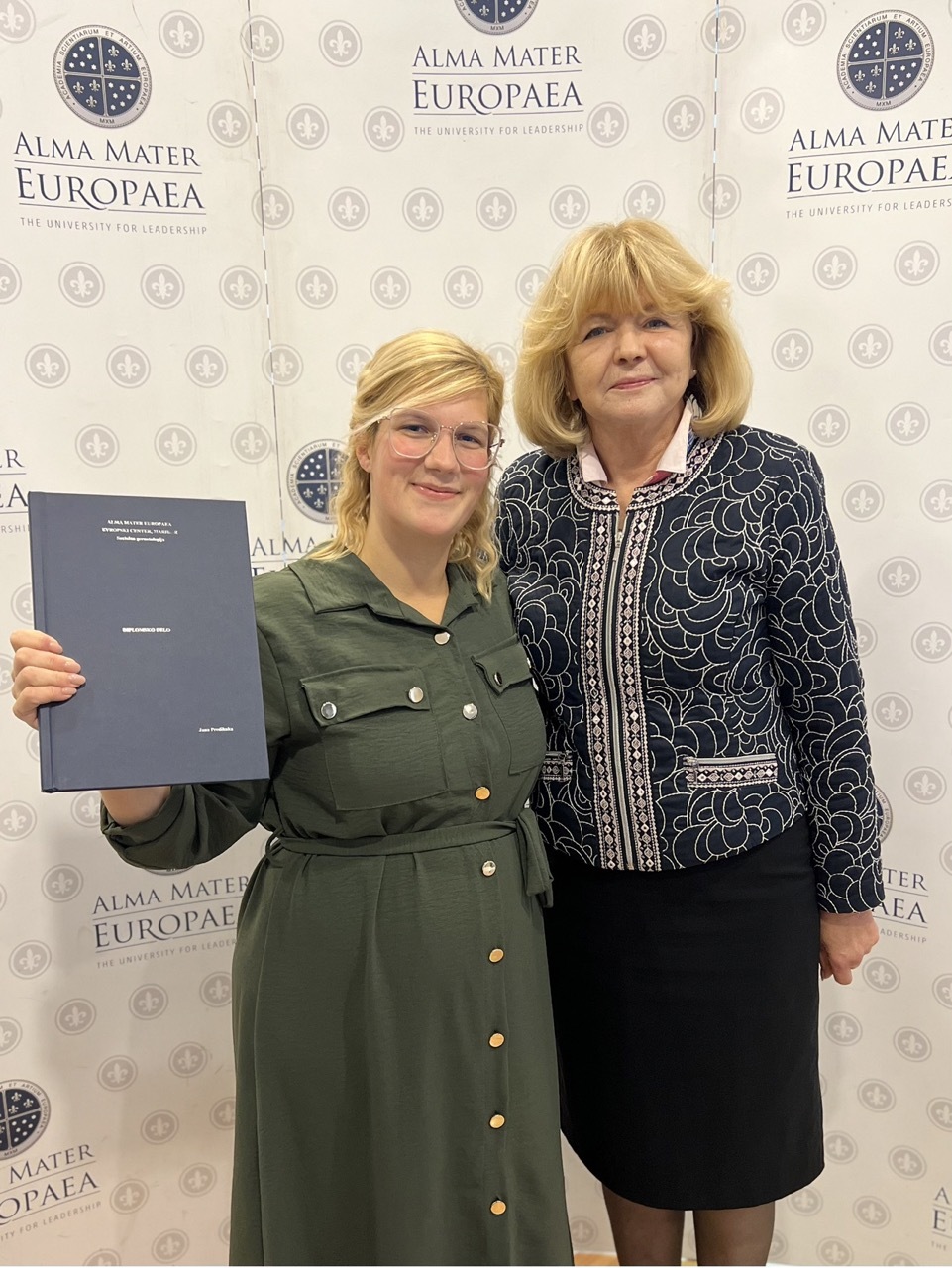
Stereotypes about aging

Aging and age are inevitably connected to the lives of each of us; however, they remain stereotyped up till today.
In her thesis, the student Jana Predikaka analyzed how stereotypes about aging and age influence satisfaction with the life of older people, depending on whether they come from an urban or rural environment.
Life expectancy has been rapidly increasing, and current data show that life expectancy for men in Slovenia is 77.63 years and for women 83.69 years. "Population is not prepared for aging, which results from misconceptions about life in the third period. Aging and age are two different concepts. Aging is a process in which people gradually experience changes in their biological, social, and psychological functioning through different life cycle phases," explains social gerontology graduate Jana Predikaka.
Biological age refers to phenomena that gradually deteriorate the physiological system over time. The body becomes less and less able to fight disease, which increases susceptibility to death. Biological age is influenced by environmental factors, e.g., nutrition, conditions, genetic record, etc. The psychological period refers to changes that occur during adulthood in the field of an individual's personality, mental functioning, and sensory and perceptual processes. We also distinguish the social period, which represents an individual's changing perceptions when experiencing roles and relationships with others and changes in functioning as members of broader social structures.
The results of the research showed that the living environment has a partial influence on the presence of stereotypes, especially negative ones. At the same time, Predikaka found no statistically significant difference in the frequency of stereotype perception according to gender. The highest deviations occurred in the influence of stereotypes in intergenerational contacts and the frequency of exposure to stereotypes on satisfaction with life.
An individual's satisfaction with life is strongly influenced by his or her inner world, which is a pre-condition for active, healthy, and quality aging. Satisfaction with life in old age can only be achieved through active participation and function in society, which gives a sense of inclusion in the social space.
Factors affecting satisfaction with life:
- self-assessment of health, which is, according to research, more closely related to satisfaction than the actual health status of an elderly person;
- symptoms of depression;
- widowhood;
- a sense of control over life;
- quality of the social network;
- intergenerational relations;
- social capital, which represents the wealth of the individual along with
- the social network, which is the essence of successful and quality aging;
- living rate, which is assessed by satisfaction with life and includes an assessment of
- narrower and wider living environment.
